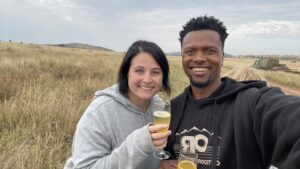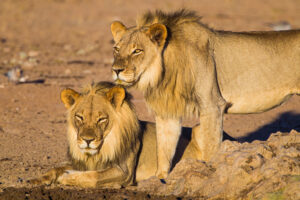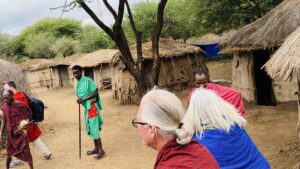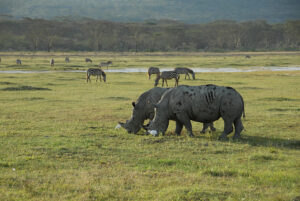Tanzania Safari Timing
Planning Your Perfect Tanzania Safari: When's the Best Time to Go?
Dreaming of wild adventures and breathtaking landscapes? Planning your perfect Tanzania safari is an exciting endeavor that promises unforgettable experiences amidst Africa’s stunning wildlife. But when’s the best time to go? With the diverse safari seasons in Tanzania offering different perspectives, from the Great Migration to lush landscapes, timing can make all the difference. Whether you’re looking to witness the dramatic river crossings or enjoy the peaceful ambiance of the green season, there’s a perfect moment for every kind of traveler. Let’s explore the ins and outs of the best time for Tanzania safari and get you ready for a thrilling journey into the heart of nature.
Understanding Tanzania Safari Seasons
Tanzania’s safari seasons offer unique experiences for wildlife enthusiasts. Let’s explore the distinct characteristics of the dry and rainy seasons to help you plan your perfect safari adventure.
Dry Season Delights
The dry season in Tanzania, from June to October, is a favorite among safari-goers. During these months, the landscape transforms into a golden savanna, making wildlife spotting easier.
Animals gather around water sources, creating incredible viewing opportunities. You’ll likely see large herds of elephants, zebras, and wildebeest congregating at rivers and watering holes.
This season also coincides with the Great Migration in the Serengeti, offering a chance to witness one of nature’s most spectacular shows. Thousands of wildebeest and zebras cross treacherous rivers, braving crocodiles and other predators.
Keep in mind that the dry season is peak tourist time. You’ll need to book your Tanzania wildlife tours well in advance and be prepared for higher prices.
Rainy Season Adventures
The rainy season, from November to May, brings its own charm to Tanzania safaris. The landscape bursts into lush, green vegetation, creating a photographer’s paradise.
This “green season” offers unique wildlife viewing opportunities. It’s the best time to spot newborn animals and migratory birds. The Serengeti comes alive with wildflowers, and the famous calving season of wildebeest occurs from January to March.
Safari-goers during this time enjoy fewer crowds and lower prices. However, some roads may become muddy and impassable, and certain camps might close.
Don’t let the rain deter you – showers are often short-lived, followed by clear skies. Plus, the dramatic cloud formations create stunning backdrops for your safari photos.
Best Time for Tanzania Safari
Choosing the best time for your Tanzania safari depends on your wildlife viewing priorities and budget considerations. Let’s break down the highlights and travel tips to help you decide.
Wildlife Viewing Highlights
Different seasons in Tanzania offer unique wildlife experiences. Understanding these can help you plan your safari to match your interests.
The dry season (June to October) is excellent for general game viewing. Animals concentrate around water sources, making them easier to spot. It’s also the prime time to witness the Great Migration river crossings in the Serengeti.
For bird enthusiasts, the wet season (November to May) is ideal. Migratory birds arrive, and the landscape becomes a colorful paradise. This period is also perfect for seeing newborn animals, especially during the wildebeest calving season in February.
Remember, wildlife viewing can be unpredictable. Flexibility and patience are key to a successful safari experience, regardless of when you visit.
Budget-Friendly Travel Tips
Planning a Tanzania safari on a budget? Consider these money-saving tips:
Travel during the low season (April to May) for reduced rates on accommodations and tours.
Book your safari well in advance to take advantage of early bird discounts.
Opt for group safaris instead of private tours to share costs.
Look for package deals that include accommodation, transport, and game drives. These can often be more cost-effective than booking everything separately.
Don’t forget to factor in additional costs like visa fees, travel insurance, and vaccinations. Budgeting for these in advance can help avoid unexpected expenses.
Safari Planning Tips for First-Timers
First-time safari-goers often feel overwhelmed by the planning process. These tips will help you prepare for an unforgettable Tanzania safari adventure.
Packing Essentials for Your Safari
Packing right can make or break your safari experience. Here’s what you shouldn’t forget:
Comfortable, neutral-colored clothing (avoid bright colors that might startle animals)
A good pair of binoculars for wildlife spotting
A camera with extra batteries and memory cards
Sun protection: hat, sunglasses, and high-SPF sunscreen
Insect repellent and any necessary medications
Remember to pack light – many safari vehicles have limited space. A soft-sided duffel bag is often more practical than a hard suitcase.
Don’t forget a warm layer for chilly morning game drives. Even in hot climates, early mornings can be surprisingly cool.
Choosing the Right Tour Operator
Selecting a reputable tour operator is crucial for a safe and enjoyable safari. Start by researching companies with good reviews and a strong safety record.
Look for operators who are members of professional associations like the Tanzania Association of Tour Operators (TATO). These organizations often have strict standards for their members.
Consider the operator’s expertise in the specific areas you want to visit. A company specializing in Serengeti safaris might not be the best choice if you’re keen on exploring lesser-known parks.
Don’t hesitate to ask questions about their vehicles, guides, and accommodation options. A good operator will be happy to provide detailed information and help tailor the safari to your preferences.
Navigating the Tanzanian Wilderness – Once you're in Tanzania, understanding how to behave and what to expect on your safari will enhance your experience. This section covers safari etiquette, game drives, and the must-see wildlife and parks that make Tanzania a top safari destination.










